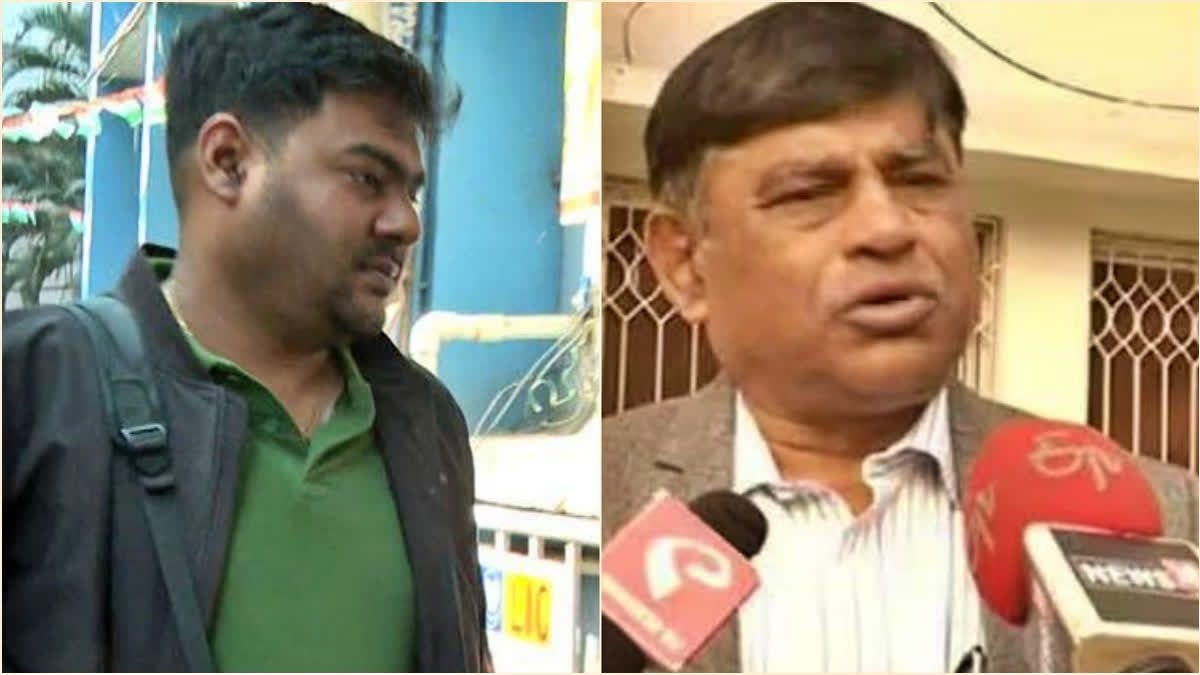New Delhi:The Supreme Court was intrigued by peculiar developments in the legal proceedings against Souvik Bhattacharya, son of TMC leader Manik Bhattacharya, in the alleged teacher recruitment scam.
Souvik, granted bail by the apex court on Friday, had surrendered before the special PMLA court in West Bengal last year after he was named in the supplementary chargesheet filed by the ED in the money laundering case related to the West Bengal teachers' recruitment "scam".
A bench of Justices Bela M Trivedi and Pankaj Mithal on Friday granted the relief after noting that no specific order summoning Souvik as an accused was passed by the trial court. Souvik was not arrested during the probe and no court order for issuance of summons or warrant was issued against him. Yet, Souvik appeared before the court and applied for bail.
The apex court was informed by Souvik’s counsel that he had surrendered before the PMLA court on "wrong legal advice". The apex court's detailed order was uploaded on the Supreme Court website on Sunday. The bench, in its order, said: “In the instant case though there was no order passed by the special (CBI) court for issuance of summons or warrant against the appellant, a summons under Section 61 came to be issued on December 22, 2022, requiring the appellant to appear before the special court on January 7, 2023”.
Souvik’s counsel informed the apex court that respecting the summons of the court, his client had voluntarily surrendered before the court and since then, he has been in judicial custody. The bench noted that Souvik appeared before the special CBI court and applied for his release on bail.
“Since there was no order passed by the special court for issuance of the summons or warrant, in our opinion, the application of the appellant seeking bail could not have been entertained. There was a basic flaw in the proceedings conducted before the Special Court”, said the bench. The bench said it is not disputed by the Additional Solicitor General (ASG) S V Raju that the appellant was not arrested during the investigation and also when the prosecution complaint was filed before the special court.
The bench said as such Section 437 would come into play when the accused is arrested or detained or when the summons or warrant is issued against the accused for causing him to be brought or to appear before the court. “In the absence of any order for issuance of summons or warrant under Section 204 or under any other provision of Cr.P.C., the summons could not have been issued or served upon the appellant nor he could have been arrested or taken into custody”, said the bench.
The bench noted that the appellant also has filed the bail application before the special court under the misconception of fact and misconception of law, which application came to be dismissed by the special court. “Though the said issue was not specifically raised by the appellant before the High Court, the said question being the question of law, we have permitted the counsel for the appellant to be raised in the instant appeal”, said the bench.
